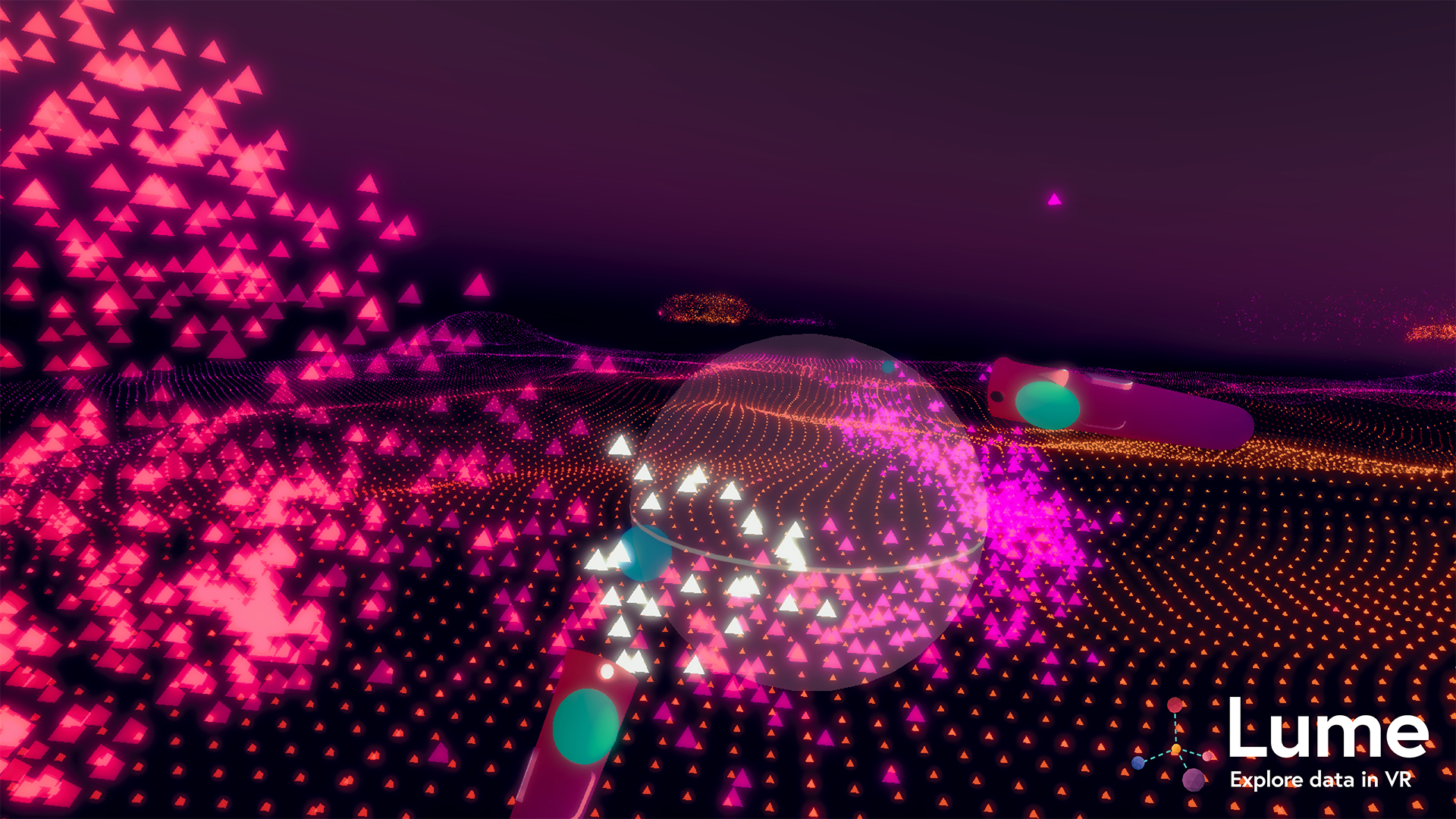Imagination works with the University of Cambridge to bring Lume to life
Posted by
Imagination has launched Lume; in collaboration with The Lee Lab at the University of Cambridge. Lume is an innovative virtual reality (VR) platform for analysts to better visualise, discover, explore and share their data.
Lume leverages the power of immersion and data analytics to make highly complex data intuitive to understand, patterns easier to recognise and insights more compelling to present and share with everyone.
Lume transforms data, bridging the gap between data science and data consumption – by including human-centred elements to data exploration and presentation. This technology can help researchers and analysts uncover and publish new insights from their data across different industries, as data is becoming increasingly hard to digest and articulate to different audiences.
In 2014, imagination’s chief technology officer, Anton Christodoulou, launched the Imagination Labs open innovation programme, to foster innovation across the organisation and support new talent. Creative Technologist, Alexandre Kitching, and Developer, Alexander Spark, joined the programme on one of the Labs first R&D projects, looking to explore how immersive technology and AI could be used to enhance live experiences. The first prototype, a multi-user VR experience pushing the limits of what is possible with this new medium, was presented live on the Innovation stage at Cannes Lions 2017.
Initially designed to solve a visualisation problem, during the first user testing session at University of Cambridge, it became apparent that Lume was providing a whole new perspective. Scientists could see patterns they had not seen before when using traditional 2D interfaces.
Lume is now being used as a data exploration and presentation tool, helping The Lee Lab find and share insights from their super-resolution microscopy data, which in turn is helping them better predict the onset of Arthritis and Type 1 Diabetes.
Lume’s algorithms instantly humanise any dataset and brings it to life, making complex and dense datasets tangible and explorable by rendering millions of points from multidimensional datasets in real-time. Points can be scaled, rotated, highlighted and selected in 3D via virtual reality controls as well as providing analysis and clustering features such as nearest neighbour analysis, density plots etc.
Imagination is hoping that Lume will help make new discoveries from complex data and improve public engagement in scientific disciplines, through translating data into a visually stimulating and intuitive experience, offering everyone an opportunity to understand important information and engage with it.
Anton Christodoulou said: “We created the Imagination Labs Programme to push the boundaries of what is possible when combining creativity and technology, and to support new talent. What began life as a project to explore how new technology could be used to enhance live experiences has transformed into a pioneering passion project for advancing scientific research. I am very excited about the possibilities that Lume offers, which has the potential to lead to incredible scientific discoveries and redefine what we expect from new technologies such as VR.”
Dr Lee, Founder of the TheLeeLab at the University of Cambridge added: “Although this tool is in its infancy, it has already proven to be invaluable. The whole team have had the privilege of seeing a single human immune cell isolated in VR, which we have physically been able to explore in nanoscopic detail. Imagination has created the multi-user VR environment for researchers to explore, understand, explain and interact with their own point cloud data and we’re very excited to use it here at the University of Cambridge. We envisage this to have a huge impact, not only in our own research community but in lots of other research disciplines.








